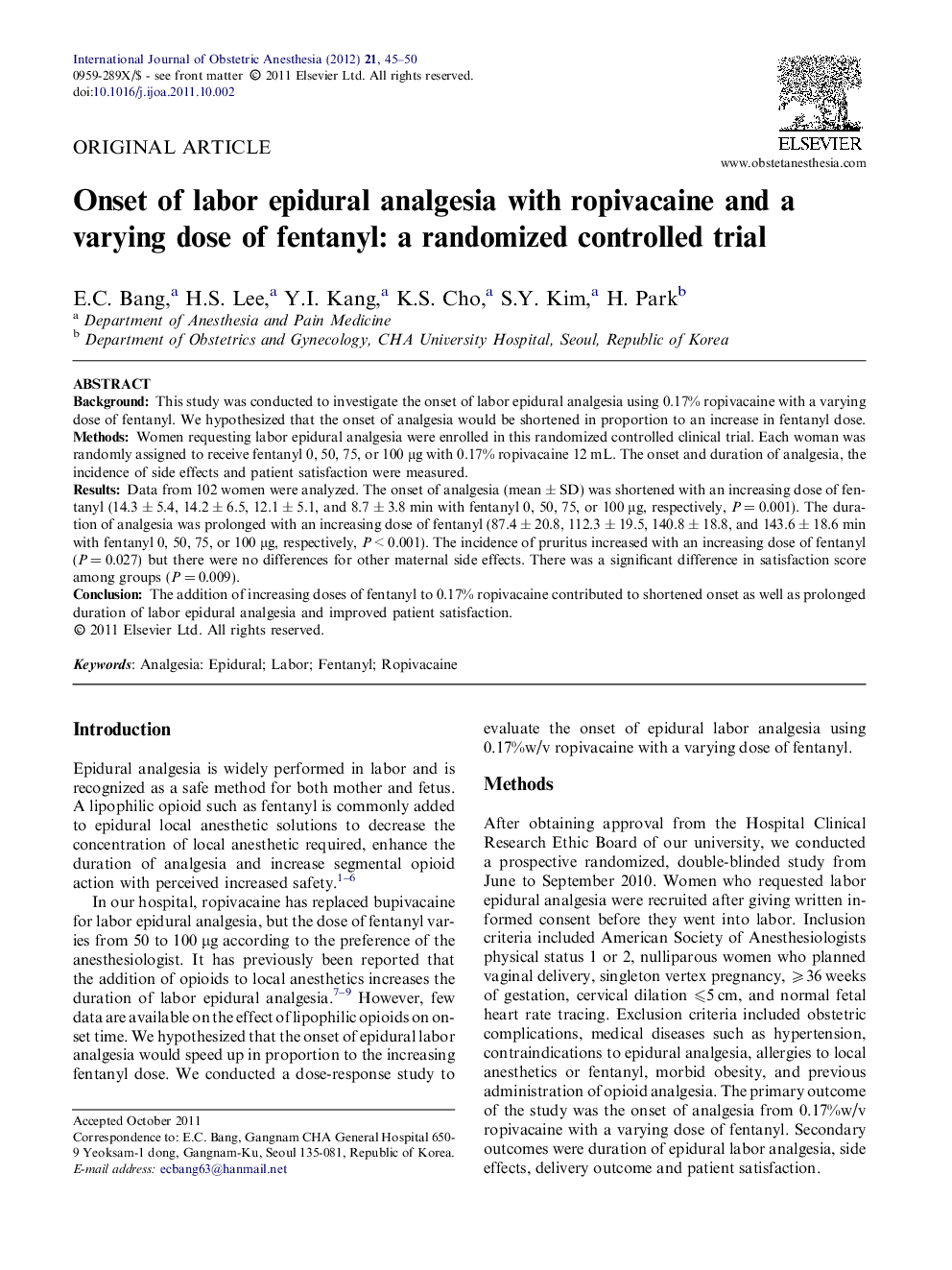| Article ID | Journal | Published Year | Pages | File Type |
|---|---|---|---|---|
| 2757751 | International Journal of Obstetric Anesthesia | 2012 | 6 Pages |
BackgroundThis study was conducted to investigate the onset of labor epidural analgesia using 0.17% ropivacaine with a varying dose of fentanyl. We hypothesized that the onset of analgesia would be shortened in proportion to an increase in fentanyl dose.MethodsWomen requesting labor epidural analgesia were enrolled in this randomized controlled clinical trial. Each woman was randomly assigned to receive fentanyl 0, 50, 75, or 100 μg with 0.17% ropivacaine 12 mL. The onset and duration of analgesia, the incidence of side effects and patient satisfaction were measured.ResultsData from 102 women were analyzed. The onset of analgesia (mean ± SD) was shortened with an increasing dose of fentanyl (14.3 ± 5.4, 14.2 ± 6.5, 12.1 ± 5.1, and 8.7 ± 3.8 min with fentanyl 0, 50, 75, or 100 μg, respectively, P = 0.001). The duration of analgesia was prolonged with an increasing dose of fentanyl (87.4 ± 20.8, 112.3 ± 19.5, 140.8 ± 18.8, and 143.6 ± 18.6 min with fentanyl 0, 50, 75, or 100 μg, respectively, P < 0.001). The incidence of pruritus increased with an increasing dose of fentanyl (P = 0.027) but there were no differences for other maternal side effects. There was a significant difference in satisfaction score among groups (P = 0.009).ConclusionThe addition of increasing doses of fentanyl to 0.17% ropivacaine contributed to shortened onset as well as prolonged duration of labor epidural analgesia and improved patient satisfaction.
